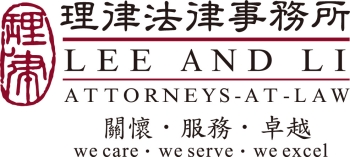As Chinese (Mandarin) is Taiwan's national language, many foreign companies use Chinese translations or transliterations of their foreign brands (trademarks) in order to expand into the Taiwanese market and allow consumers in Taiwan to identify their products more easily.
However, as Chinese characters can have different pronunciations and meanings, there are often multiple ways of translating or transliterating foreign trademarks into Chinese.
Similarity may not exist when comparing a foreign trademark with its Chinese translated or transliterated version using the traditional standard of trademark similarity. As such, when Chinese translated or transliterated versions of foreign trademarks are applied for or registered in bad faith, it is unclear whether there is a likelihood of confusion according to current practice in Taiwan.
The Intellectual Property Court recently addressed this issue in an administrative case relating to a trademark opposition.
The opponent of the disputed trademark registration was a French cosmetics company, while the registrant was the cosmetics company's distributor in Taiwan.
The cosmetics company determined a Chinese translation of its foreign trademark and ordered the distributor not to use any other trademark or IP right relating to that mark. However, the distributor did not use this Chinese translation.
The distributor claimed that, due to a marketing need, it had created its own Chinese translation of the foreign trademark and had used the cosmetics company's Chinese translation only during the distribution period.
The cosmetics company sought to end its distribution relationship with the distributor and discovered that the distributor had registered its own Chinese version of the foreign trademark (the disputed trademark).
The distributor argued that:
- the disputed trademark had been an independent creation;
- the Chinese translation of the cosmetics company's foreign trademark was pronounced differently to the Chinese translation used in the disputed trademark; and
- no similarity existed between the disputed trademark and the cosmetics company's foreign trademark.
The Intellectual Property Court highlighted the fact that the distributor and its related company had continually used the disputed trademark and the cosmetics company's foreign trademark. Further, the distributor had regularly added the word 'French' to the disputed trademark to represent the cosmetics company's product.
The court also learned that the distributor had filed and used the cosmetics company's Chinese translation in its registration for the disputed trademark.
In view of these findings, the court declared that the distributor had wilfully attempted to confuse consumers in Taiwan and registered the disputed trademark in bad faith. Therefore, the disputed trademark could not be protected under the Trademark Act.
This decision clarifies that where a registrant applies to register a Chinese translated or transliterated version of a foreign trademark despite having knowledge of a likelihood of confusion, the application will be considered to have been filed in bad faith and will be deemed invalid.
This article was first published by the International Law Office, a premium online legal update service for major companies and law firms worldwide. Register for a free subscription.



